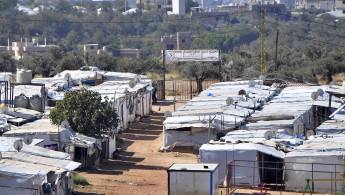Lebanon to get 600,000 cholera vaccines as outbreak grows
Lebanon will receive 600,000 doses of a cholera vaccine to help combat the outbreak of the deadly disease in the country, Public Health Minister Firas al-Abyad said Wednesday.
Lebanon will receive the vaccines within the next two weeks after the World Health Organisation approved a request for them, Abyad said at a press conference.
Health sector workers, followed by inmates at Lebanon's crowded prisons, will be high on the priority list for the jabs, The New Arab's Arabic-language site Al-Araby Al-Jadeed reported, citing sources in the health ministry.
Lebanon recorded the first case in its current outbreak of cholera on 6 October - it is also the first case of the disease the country had seen since 1993.
It has recorded a total of 346 confirmed cases of cholera and 14 associated deaths since the outbreak began, the health ministry said Wednesday.
International charities have warned that case numbers in Lebanon and in neighbouring Syria will continue to grow quickly. Save the Children said Thursday that cholera cases in Lebanon had almost doubled in the space of a week.
Syria has seen over 20,000 cases of cholera and scores of related deaths, with the disease now having been detected in every province in the country.
Cholera is typically spread through contaminated water, food or sewage. It can cause severe diarrhoea and dehydration which can kill if left untreated.
Charities have warned that it will spread rapidly in Lebanon and in Syria, particularly in camps for refugees and the displaced, where clean water is often scarce.
Most cholera cases in Lebanon have been detected in the camps, Abyad has previously said.





 Follow the Middle East's top stories in English at The New Arab on Google News
Follow the Middle East's top stories in English at The New Arab on Google News


